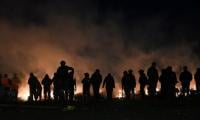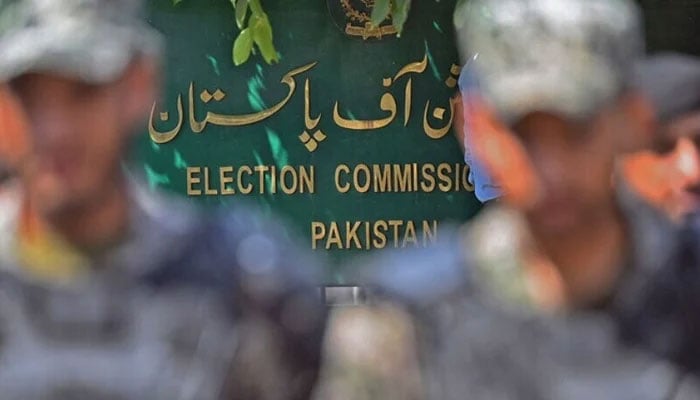‘The Ritual of Elections of Pakistan’
Our view is that the twelfth national elections scheduled for 8 Feb 2024 are a welcome step.
ISLAMABAD: “The story of Pakistan’s eleven elections with one lesson: Pakistani elections are a process without a product,” writes Dr Ijaz Shafi Gilani, Founder and Chairperson of Gallup Pakistan, leading survey and research firm.
In his book The Ritual of Elections of Pakistan (1970-2018), Shafi also briefly reflected on the upcoming elections and wrote, “Our view is that the twelfth national elections scheduled for 8 Feb 2024 are a welcome step. They are unlikely to resolve the current political crises but can possibly provide an interlude for the political restructuring necessary for resolving it.”
Referring to the eleven elections held till 2018, he said, “The one lesson we put forth is that, so far, elections in Pakistan have been a reasonably well performed ritual held on the average every four years since 1970. The problem is not with the quality or the correctness of the ritual. Instead, what troubles the polity is that this ritual is a process which delivers no product.”
“The process moves in a circular fashion whereby it returns to the starting point at the end of each cycle without a forward movement. In other words, it delivers no tangible product in terms of any concrete progress on the road to democratic or constitutional order. What is our evidence?” he maintained.
Our evidence, he said, comes from a close reading of each one of Pakistan’s eleven elections, which were discussed in detail in the book. He maintains, “Our reading is that, with minor exceptions, each one of the eleven national elections (1970-2018) went through seven stages mimicking the seven acts of a multi-episode play. The plot of the play is that the story invariably returns to the starting point of the previous episode. The plot does not move forward progressively. Thus, elections are announced, an election campaign goes through its motions and the electoral contest is conducted which leads to the formation of a government. Despite several hiccups on the way, an elected government begins to function.”
“After a short while, tensions arise between the elected and the unelected sections of government. As tensions mount, the role of the elected government is terminated before it has completed its statutory term. This leads to a period of uncertainty about the future course. Nevertheless, the uncertainty settles down and fresh elections are called. The seven acts of this play move on to repeat themselves with minor cosmetic changes.” He also pointed out, “The eleventh round of Pakistan’s national elections ‘2018-23’ faced the same fate as the previous ten. It went through the seven acts or rituals which we have identified in this book. The process climaxed with the familiar tensions between the elected and the unelected arms of the government resulting in the breakdown of the system. The political government was back to square one without making much headway towards democracy and good government.” “Despite its similarity with the previous ones, the eleventh round was distinctive on one important count. It gave birth to what we have identified in Chapter 3 as a disruptive political cluster. The emergence of PTI as a disruptive political cluster has parallels with the emergence of PPP in the 1970 elections with one difference. PPP voiced the demand of the poor for a share in ‘prosperity’. Conversely, PTI has voiced the demand of the middle and upper classes for a share in ‘power’. It is important to note this difference because that would influence the transformative actions necessary to restore an atmosphere suited for competitive politics and multi-party democracy,” added Shafi.
Given this background, he added, we conclude the book by presenting a set of reflections on Pakistan’s current political crisis. “Those are presented as part of an Epilogue in this book. Our view is that the twelfth national elections scheduled for 8 January 2024 are a welcome step. They are unlikely to resolve the current political crises but can possibly provide an interlude for the political restructuring necessary for resolving it. A set of seven reflections summarizes our analysis about the nature of the current political crisis and a proposed path to resolve it. The proposed pathway laid out for initiating a dialogue on the subject can be treated as a modest contribution of this short treatise.”
-
 'Bridgerton' Season 4: Showrunner Talks About Violet's Steamy Romance
'Bridgerton' Season 4: Showrunner Talks About Violet's Steamy Romance -
 John Tesh Recalls ‘uncomfortable’ Backlash Over ’70s Romance With Oprah Winfrey
John Tesh Recalls ‘uncomfortable’ Backlash Over ’70s Romance With Oprah Winfrey -
 Meghan Markle, Prince Harry Problem Was Not ‘work’ During Time With Royals
Meghan Markle, Prince Harry Problem Was Not ‘work’ During Time With Royals -
 Meta Strikes Multi-billion-dollar AI Chip Deal With Google: Will The New Collaboration Pay Off?
Meta Strikes Multi-billion-dollar AI Chip Deal With Google: Will The New Collaboration Pay Off? -
 Gracie Abrams Breaks Silence After Losing 2026 BRIT Award
Gracie Abrams Breaks Silence After Losing 2026 BRIT Award -
 Deon Cole Takes Swipe At Nicki Minaj In Mock Prayer During NAACP Image Awards Monologue
Deon Cole Takes Swipe At Nicki Minaj In Mock Prayer During NAACP Image Awards Monologue -
 Jennifer Garner Reveals The Actress Who 'carried Through Things'
Jennifer Garner Reveals The Actress Who 'carried Through Things' -
 Shamed Andrew ‘awful’ Time As Trade Envoy Is Laid Bare By Insider
Shamed Andrew ‘awful’ Time As Trade Envoy Is Laid Bare By Insider -
 Belgium Seizes Suspected Russian Shadow Fleet Tanker
Belgium Seizes Suspected Russian Shadow Fleet Tanker -
 Liza Minelli Makes Bombshell Claim About Late Mother Judy Garland’s Struggle With Drugs
Liza Minelli Makes Bombshell Claim About Late Mother Judy Garland’s Struggle With Drugs -
 Shipping Giant Maersk Halts Suez Canal, Bab El-Mandeb Sailings Amid Escalating Conflict
Shipping Giant Maersk Halts Suez Canal, Bab El-Mandeb Sailings Amid Escalating Conflict -
 Matthew McCoughaney Reveals One 'gift' He Achieved With Losing Nearly 50 Pounds
Matthew McCoughaney Reveals One 'gift' He Achieved With Losing Nearly 50 Pounds -
 'Scream 7' Breaks Box Office Record Of Slasher Franchise: 'We Are Grateful'
'Scream 7' Breaks Box Office Record Of Slasher Franchise: 'We Are Grateful' -
 Bolivian Military Plane Crash Death Toll Rises To 20
Bolivian Military Plane Crash Death Toll Rises To 20 -
 'Sinners' Star Blasts Major Media Company For 2026 BAFTAs Incident
'Sinners' Star Blasts Major Media Company For 2026 BAFTAs Incident -
 Inside Scooter Braun, Sydney Sweeney's Plans To Settle Down, Have A Baby
Inside Scooter Braun, Sydney Sweeney's Plans To Settle Down, Have A Baby




